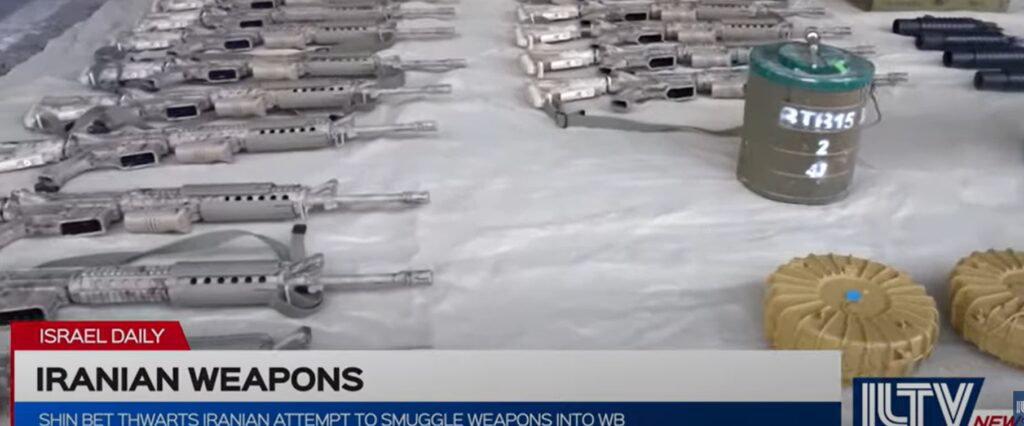The recent assassination in Damascus on March 26 of General Hassan Mahdavi, commander of the Quds Force in Syria and Lebanon, on behalf of the Iranian Revolutionary Guards, raises questions about the impact on arms smuggling reaching Judea and Samaria.
Mahdavi was responsible for overseeing weapons transfers from Iran to Syria, Iraq, Lebanon, and Judea and Samaria.
The attack in Damascus also resulted in the deaths of seven Iranian officers, including members of “Unit 4000” of the Revolutionary Guards and “Unit 18840” of the Quds Force, involved in smuggling weapons to Israel and northern Samaria.
This event highlights the clandestine conflict between Israel and Iran over the smuggling of Iranian weapons into Judea and Samaria.
Iranian weapons are smuggled into Israel and northern Samaria through two main routes:
- From Iran to Syria or Iraq, then through northern Jordan and the Jordan Valley to the Samaria region.
- From Syria to Lebanon and then across the border into Israel and northern Samaria.
Some of these weapons end up in the hands of criminal factions within the Arab sector of Israel.
The Iranian smuggling networks involve operatives from the Quds Force, Hezbollah, criminal gangs, and Bedouin smugglers in northern Jordan.
Despite efforts by the Jordanian army to combat smugglers, including those trafficking the drug Captagon, smuggling operations persist.
In response to Mahdavi’s assassination, senior security officials anticipate an increase in weapon smuggling into northern Samaria to provoke attacks by armed terrorist groups seeking retribution.
Previously, Iran smuggled light weapons such as rifles, pistols, and explosive charges.




